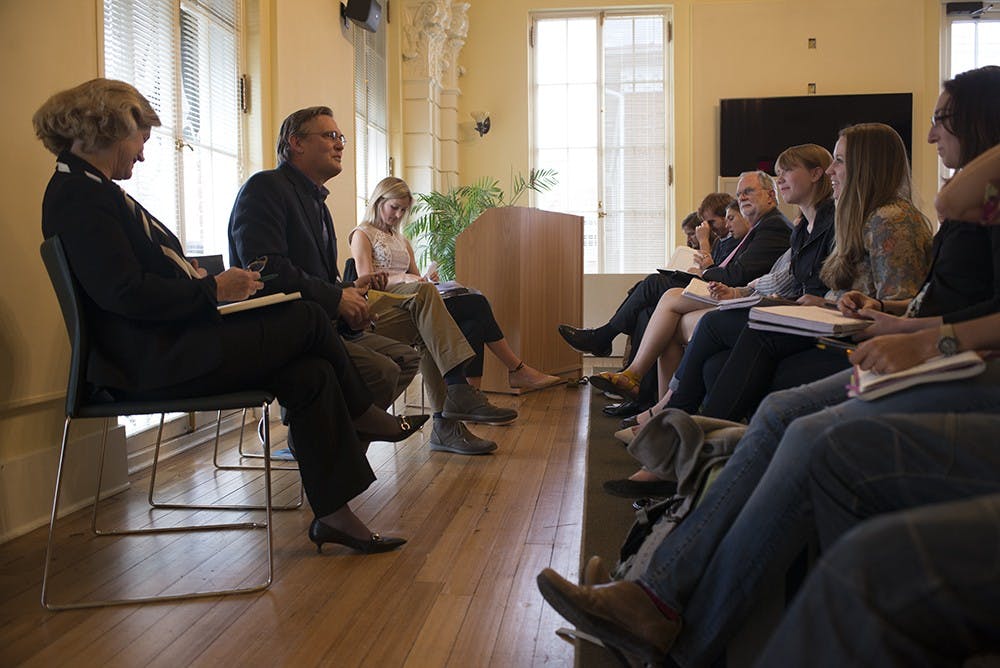The Batten School and the Architecture School co-hosted a panel entitled “Sustainable Urban Policy and Smart Cities” Tuesday evening. The panel consisted of various professors from the Urban and Environmental Planning department, the Architecture School and a San Francisco Bay Area non-profit, SPUR. Gerald Warburg, Batten School assistant dean for external affairs, moderated the discussion.
The panel constituents focused on the importance of cities in addressing the environmental and economic issues facing modern society, specifically in the United States.
Both Gabriel Metcalf, SPUR CEO, and Timothy Beatley, professor of Sustainable Communities in the Architecture School, cited improvements future cities needed to implement to combat the current city’s environmental and economics hindrances.
“The only way we are going to reduce greenhouse gas emissions from the daily lives of most people is to reconstruct our cities in such a way that people do not need to drive as their default mode of transportation,” Metcalf said.
Similarly, Beatley said cities should be more accessible for pedestrian foot traffic.
“[My work deals with] how you can design compact, dense, walkable cities, but also cities that contain nature and also celebrate that nature,” Beatley said. “[We should be] rethinking cities as not simply black holes that absorb and draw things in from hundreds of thousands of miles away, like food, but rather as places that are bountiful.”
The four panel members also emphasized the role of building up public perception of city potential. Suzanne Morse Moomaw, associate professor in the Architecture School’s department of urban and environmental planning, said inventing the future requires imagination not only on the part of urban planners, but also in the public in general.
“Human people need a sense of possibility of what might be able to happen,” Moomaw said. “[It’s important to be] able to create both a conversation and imagination of what cities could look like.”
Beatley also said public citizens should be made aware of “the magic of urban life and how to get there.” Fostering a framework of awe through which the public may view future cities is key to achieving a sustainable city, he said.
Metcalf, in response to a question regarding the three best ways to improve cities, concurred.
“Change is presumed guilty until proven innocent in current civic life,” Metcalf said. “[There is a] challenge to get people in America to dream big about change and dream big about future change.”
Jennifer Warburg, SPUR special projects manager, said it is important to explain these proposed changes in greater detail to the public because urban planners and economists use certain language which may have been misconstrued in the past.
“It is incumbent on policy makers and planners to get better at communicating to people what density means, and what building more houses and what changing neighborhoods means,” Warburg said. “[Density] can feel very hospitable and welcoming and alive.”
The panel fielded questions from students regarding inequity in current cities, how those issues may be resolved, public transportation issues, the feasibility of implementing them in these smart cities and how urban planning plays a role in the work of nonprofit organizations such as SPUR.
Moderator Gerald Warburg said these interdisciplinary conversations regarding prevalent issues are important to hold because they allow for the collaboration of many different fields.
“We have the power to be the convener on Grounds,” Warburg said.







